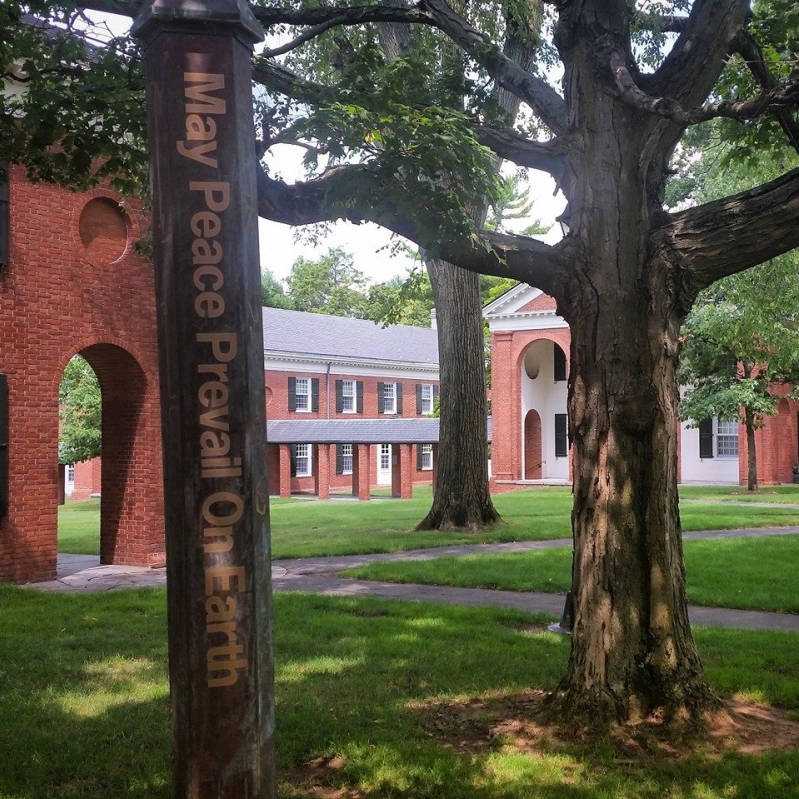
Tom Krattenmaker, communications director at Yale Divinity School and secular author of the forthcoming book "Confessions of a Secular Jesus Follower," said there is a Christian way to handle the "inveterate bad behavior" of GOP 2016 presidential candidate Donald Trump.
Calling Trump a "commandment-breaker," Krattenmaker stated in a USA Today column Sunday it helps to clear about the meaning of "love" in the biblical context.
John J. Collins, a prolific Yale scholar who teaches a popular class on biblical values and their application to public issues today, said the word "love" conveys something quite different from what comes to mind for most people. This biblical love, according to Collins, it not a surge of affection or a romantic attraction to someone. Rather, it can be thought of as a commitment to and regard for fellow human beings, even those who don't share the same political or cultural views.
Krattenmaker ask if "loving" one's political rivals means ceding elections to them, or abandoning personal principles and policies to push theirs instead? "Of course not. If we believe Trump's values and politics would harm the country and the people who populate it, 'love' compels us to resist his election and the advancement of what he stands for," he wrote.
The author stated he finds it's easier to empathize with Trump supporters rather than Trump himself. "This is not to endorse the bigotry frequently on display at Trump rallies, or the 'lock her up!' vitriol and threats of violence against Clinton. There is no place for these," he added.
Krattenmaker cites the "frustration and bewilderment of a subset of the country that has felt abandoned by rapid economic and social upheaval and politics-as-usual."
To "love Trump supporters" is to tease out what might be legitimate about their grievances and to want them to have decent, dignified lives. It means relating to them in a way conducive to a change of heart, he suggests.
"Bible scholars will tell you that an important aspect of Jesus-style love is wanting the best for others, even those you label 'enemy.' In Collins' view, this suggests wanting for Trump a newfound ability to resist firing off mean-spirited tweets and ill-conceived ideas that malign other people and reveal his own lack of knowledge and character," stated Krattenmaker.
For a "narcissistic power-seeker," winning the presidential election would only feed his worst tendencies, wrote Krattenmaker. "His massive and problematic ego - "I alone can fix it," as he boasts when discussing the country's problems-would likely soar to destructive new heights were he to occupy the most powerful office in the land."
Krattenmaker said it better for Trump's character and soul to experience and accept a very public loss in this biggest contest of his life and spend his remaining years devoting himself to ends more edifying than inflating his superiority and degrading his rivals.
"'Loving' Trump means resisting any urge to clamor for his imprisonment or execution, as some of his supporters have demanded for Clinton. No need for any symbolic walk of shame like that endured by Cersei Lannister in Game of Thrones," stated Krattenmaker.
This communications director said he believes when we change our regard for political enemies, they morph. "They remain our political opponents, but they are no longer our 'enemies,' and no longer deserving of the treatment the word implies.
"They become, instead, human, and deserving of all that implies. Even if their name is Donald Trump."







